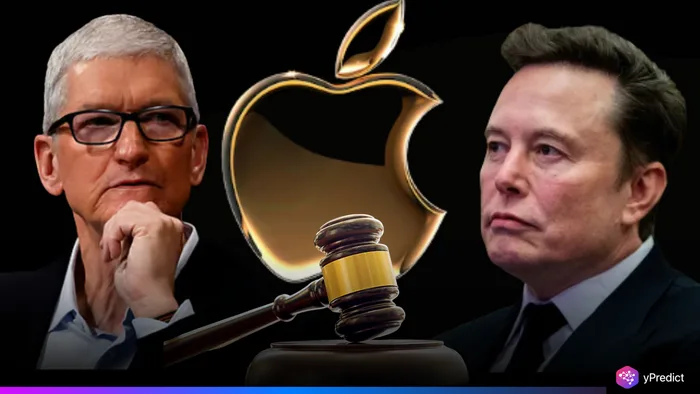
Elon Musk’s AI startup, xAI, plans to sue Apple over what Musk calls unfair treatment in App Store rankings. He claims Apple blocks all AI apps except OpenAI’s ChatGPT from reaching the top spot. This claim has sparked a heated debate about fairness and competition in app marketplaces as AI apps gain popularity.
Apple already faces intense scrutiny over its App Store practices from regulators. Recently, courts and regulators investigated the company over allegations of limiting competition through its app policies and ranking algorithms. Musk’s claims add a new chapter to the ongoing battle over app ecosystem control and antitrust compliance, making the dispute even more significant.
What Exactly Is Elon Musk Accusing Apple Of?
Musk posted on his social platform X, claiming Apple’s App Store ranking system prevents any AI company except OpenAI from reaching the number one position. He called this an “unequivocal antitrust violation” and declared xAI will take immediate legal action.
According to Musk, Apple’s behavior amounts to anti-competitive conduct because it favors OpenAI’s ChatGPT app in rankings and promotions. Musk also questioned why Apple refuses to feature xAI’s Grok app or his social platform X in the “Must Have” sections, despite their strong user base and app performance.
Currently, ChatGPT holds the top spot in the App Store’s “Top Free Apps” category in the U.S., with xAI’s Grok ranking fifth, and Google’s Gemini chatbot much lower. Apple has a known partnership with OpenAI, integrating ChatGPT into its devices, which Musk implies gives OpenAI an unfair advantage.
How Apple’s App Store Rankings Impact AI App Competition
App Store rankings greatly affect how users discover and download the major app. If you are featured or ranked very high, you can get millions of downloads which also generate revenue. Apple has significant power to rank apps, which means it can create a significant impact on the apps that are introduced into its ecosystem.
Musk’s accusations raise an important issue of whether Apple is misusing this power to inequitably block competition, illegal behavior under antitrust law which was introduced to facilitate competition.
Recent legal actions have already challenged Apple’s App Store rules. In April, a U.S. District Judge ruled Apple was in violation of judge-decree requirements it allow additional competition and referred the company to prosecutors. The EU has also fined Apple 500 million euros for restricting app developers from steering users to off-Pay-Store deals that are less expensive.
What Are the Broader Implications of This Legal Fight?
If Musk’s xAI wins the case, Apple may have to change how it ranks and promotes apps in the App Store. This could open the door for more AI apps to compete fairly on iPhones and iPads, giving consumers more choices and alternatives.
This fight highlights a bigger power struggle in the fast-growing AI app market. Major tech players like Apple and OpenAI hold strong positions. Regulators now watch their competition closely to prevent abuse of power.
For AI startups, this case will set a key precedent on how much control platform owners hold over app success. It also raises important questions about transparency in app rankings and balancing user preferences with preferred partnerships.
How Are Apple and OpenAI Responding?
To date, Apple, OpenAI, and xAI have not formally commented on Musk’s allegations beyond his social media comments. Apple continues to face scrutiny, but its position is that it protects user security and quality through the App Store policies.
OpenAI benefits from integration with Apple devices, although how much influence this partnership has on direct ranking is unresolved. The discussion will change as regulatory review and legal proceedings unfold.
What’s Next for xAI and Apple?
The legal action initiated by xAI represents a new level in the fight for fairness in app stores. Musk’s announcement publicly challenges app marketplace power and reflects the current environmental landscape of antitrust enforcement in the digital economy.
As AI apps continue to grow in their presence and power, the management of app rankings will remain a pivotal matter for developers, users, and regulators. Depending on the outcome of this case, it could change the competitiveness of the app ecosystem for years to come.





